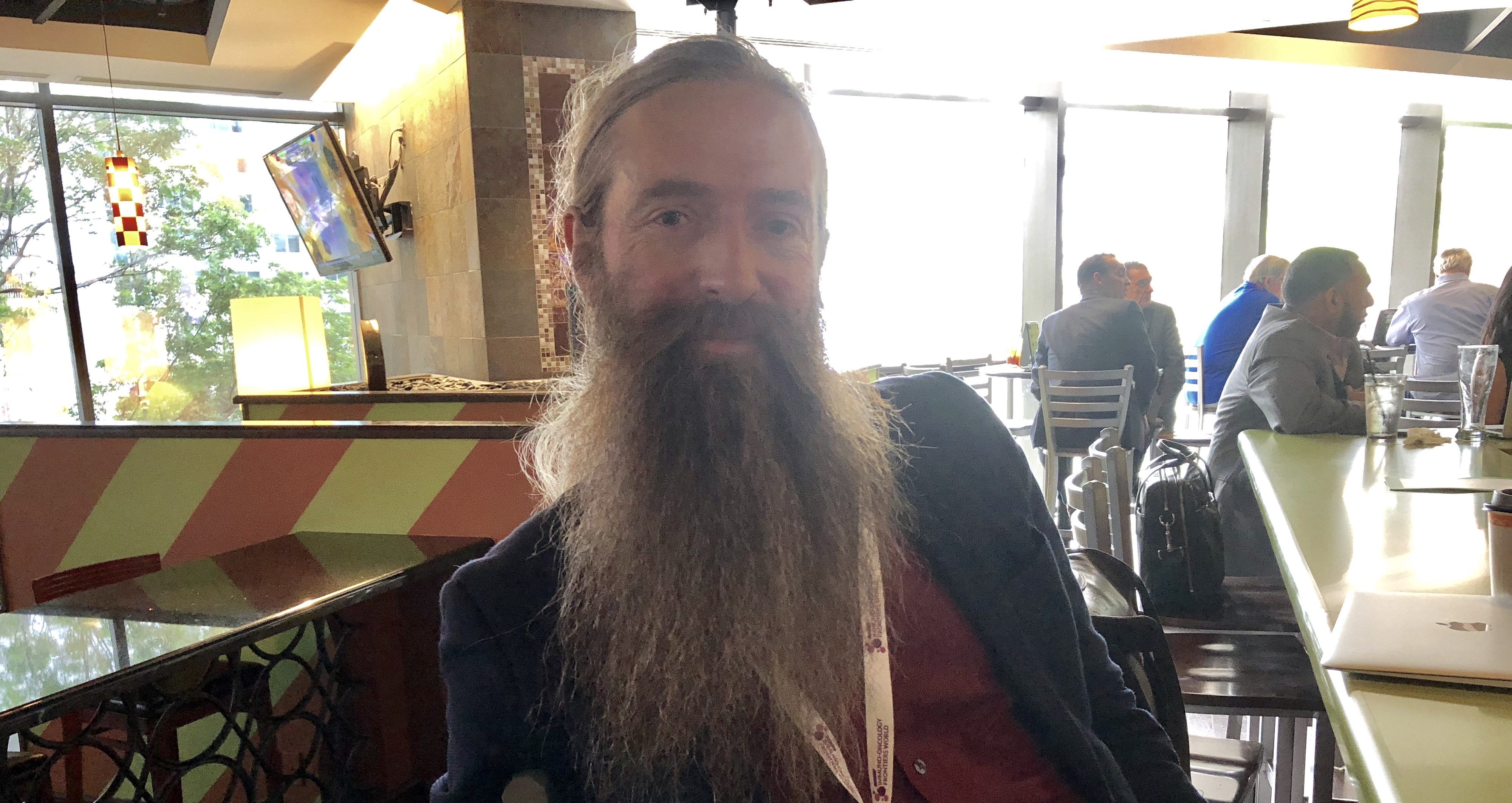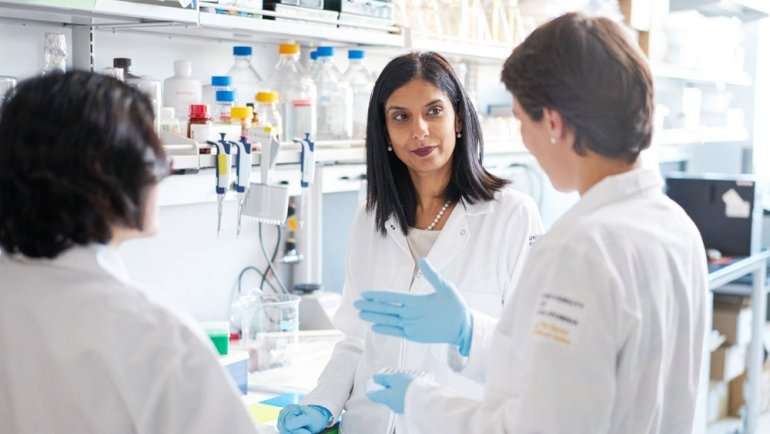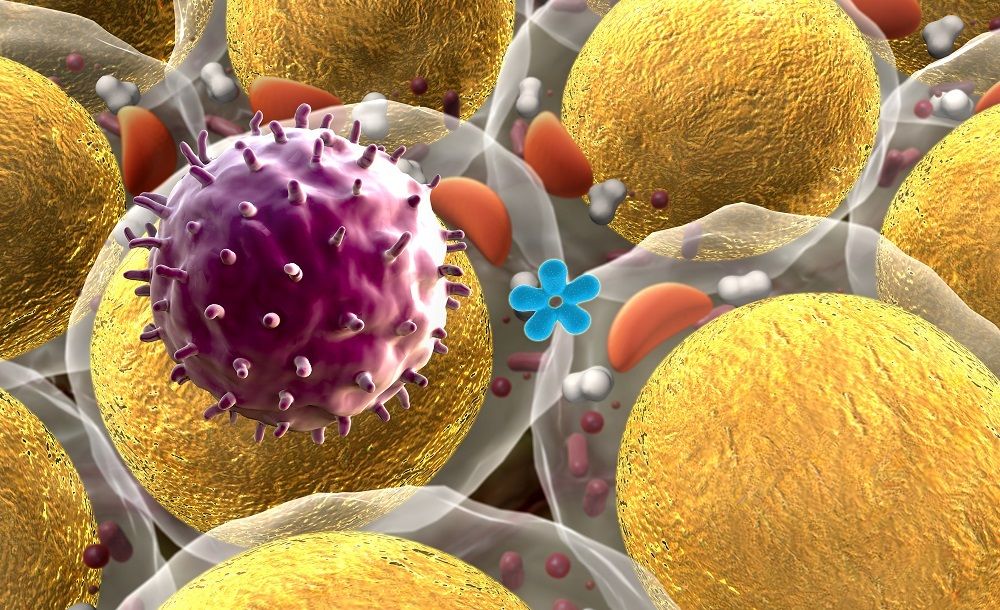
Category: life extension – Page 598


Cancer ‘vaccine’ eradicates tumors in mice, holds promise in humans
Summary: Activating T cells in tumors destroyed most traces of cancer in mice, and had ‘amazing, bodywide effects,’ Stanford University researchers reported. The researchers are recruiting lymphoma patients to test the approach in a clinical trial. [This article first appeared on the website LongevityFacts.com. Author: Brady Hartman. ]
Researchers at the Stanford University School of Medicine used two novel agents to activate immune system T cells in tumors. The immune-boosting treatment destroyed most traces of cancer in mice the researchers reported in a study published on Jan. 31 in the journal Science Translational Medicine.
Injecting tiny amounts of two immune-stimulating agents directly into solid tumors in mice can eradicate all traces of cancer in the rodents, including distant metastases, the researchers found. The novel approach works for many different types of cancers, including tumors that arise spontaneously, the new study found.

Anti-Aging Pioneer Aubrey de Grey: “People in Middle Age Now Have a Fair Chance”
Aging is not a mystery, says famed researcher Dr. Aubrey de Grey, perhaps the world’s foremost advocate of the provocative view that medical technology will one day allow humans to control the aging process and live healthily into our hundreds—or even thousands.
“The cultural attitudes toward all of this are going to be completely turned upside down by sufficiently promising results in the lab, in mice.”
He likens aging to a car wearing down over time; as the body operates normally, it accumulates damage which can be tolerated for a while, but eventually sends us into steep decline. The most promising way to escape this biological reality, he says, is to repair the damage as needed with precise scientific tools.
Altered Carbon Trailer
For those of life extensionists who are in San Francisco or not far from it!
Tomorrow, February 2, 7:00 PM – 11:00 PM PST, 54 Washburn St, San Francisco there will be the *Premiere Viewing Party*!
In the beginning of the party longevity researcher & TED Fellow *Aubrey de Grey* will be making some remarks on the current state of longevity research here in the real world before we partake of the fictional one.

Researchers report promising pterostilbene and NR clinical trial results
Results of NR and pterostilbene clinical trial are promising.
A clinical trial of an NR and pterostilbene anti-aging supplement appeared to be safe over the short-term as it increased NAD levels in a sustained way. [This article first appeared on the website LongevityFacts.com. Author: Brady Hartman. ]
A clinical trial of NR and pterostilbene sustainably increased NAD levels and appeared to be safe over the short-term. Moreover, the study suggests that it increased the mobility of the aging test subjects.
Our NAD levels decline as we age, and as the theory goes, boosting NAD will also increase our energy and keep our bodies in better condition.

Could a protein named klotho block aging and dementia?
Could a protein called klotho block aging and dementia?
Summary: More klotho means better cognitive function says a scientist. By injecting the protein Klotho into mice with Alzheimer’s, a UCSF researcher improved their brain function. The researcher hopes to eventually apply the treatment to humans to treat aging and dementia. [Introduction by Brady Hartman, followed by a link to the full article.]
Neurologist and neuroscientist Dr. Dena Dubal wants to prevent dementia and aging with a protein called Klotho. Dr. Dubal, MD, Ph.D. – an associate professor of neurology at UC San Francisco – aims to use this novel approach to battle neurodegenerative diseases like Alzheimer’s disease and dementia.
Rather than battle these diseases head-on, professor Dubal aims to block the aging process itself. Dr. Dubal is testing the protein’s potential as a therapeutic. The researcher found that by administering the protein to mice, she gave them a cognitive boost, equivalent to genetically increasing klotho. In fact, after injecting the protein into mice that had a condition similar to Alzheimer’s, Dr. Dubal remarked.

Revolutionary stealth virus holds promise for cancer therapy
Researchers solved a problem that has been holding back the use of viral vectors for cancer therapy. They re-engineered viruses with a novel stealth technique that enables them to be used to treat cancer.
Up until now, viral vectors couldn’t be used widely in cancer therapy. Researchers just announced that they re-engineered an adenovirus with a novel stealth technique that enables it to be used to fight tumors. [This article first appeared on the website LongevityFacts.com. Author: Brady Hartman. ]
Viral vectors are well-developed tools used by scientists to deliver genetic material into cells. Unfortunately, they haven’t worked well to treat cancer until a group of researchers in Switzerland re-engineered them to enable them to be used in cancer therapy.
Researchers from the University of Zurich have re-engineered an adenovirus for use in cancer therapy. To achieve this, scientists developed a new protein shield that hides the virus and protects it from being eliminated by the body. Moreover, adapters on the surface of the virus enable the reconstructed virus to target and infect tumor cells.

Developing a Science-based Personal Longevity Strategy
When developing any personal health and longevity strategy it is essential to apply the scientific method.
There is one common public reaction to my talks that bothers me quite a bit. I am worried that after each of my lectures, people will just start taking lots of anti-aging pills without regard for dosage or effectiveness, potentially hurting themselves in the process.
This is because one of the most common reactions to me mentioning any currently available interventions is to search for each and every component and order them all right away. Whatever I say about safety and the need to test before people make any changes in their lifestyles seems ineffective.
So, I want to talk about this problem.

Researchers Cure Lung Fibrosis in Mice With a Single Gene Therapy
Idiopathic pulmonary fibrosis is a disease associated with critically short telomeres, and it currently lacks a reliable and effective treatment. Researchers at the Telomere and Telomerase Group at the Spanish National Cancer Research Centre (CNIO) have cured the disease in mice using telomerase therapy to lengthen short telomeres.
A proof of concept for an effective treatment against pulmonary fibrosis
The authors of this study have stated that this is a “proof of concept that telomerase activation represents an effective treatment against pulmonary fibrosis” in their publication[1].

Bioquark Inc. — Grognostics — Ira Pastor
Part #1 of an awesome show with Steve and Jason on Grognostics merging together discussions on biotech, craft beer, human potential, as well as a comedic journey into the world of 2039
https://www.stitcher.com/podcast/grognostics/e/53077743?autoplay=true